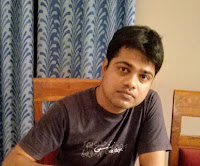Where the Mind is Without Fear by Tagore : A Complete Study

I. Tagore: An Introduction Tagore is a very great Indian poet. He was a versatile genius. It is he who got the Nobel Prize for Literature in 1913. He was born in Calcutta on May 7, 1861. His literary works include fictions, essays, short stories, travelogues, dramas and numerous popular songs. But it was poetry that brought world popularity for him. This very Tagore has composed Jana Gana Mana, the national anthem of India. He also has composed Amar Sonar Bangla, the national anthem of Bangladesh. His literary canvas is vast. It covers lots of style. Tagore skillfully handled all the genres of literature. He studies man in relation to Nature, man in relation to God and man in relation to man. Tagore's poetry is mainly lyrical. His poetry deals with love for God, love for nature and love for humanity. His famous song Where the Mind is Without Fear is full with patriotism, nationalism and Indianness. This great poet is known for his best known collection, Gitanjali. In short, Tag